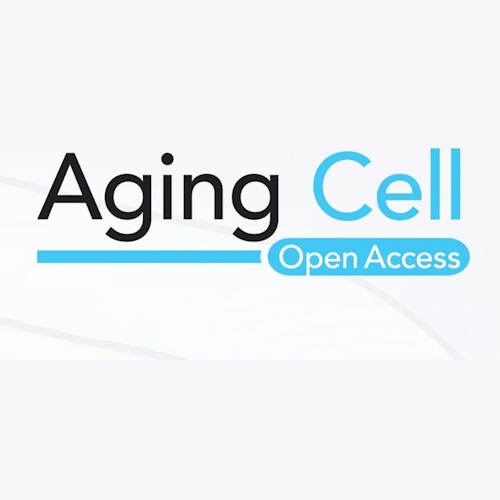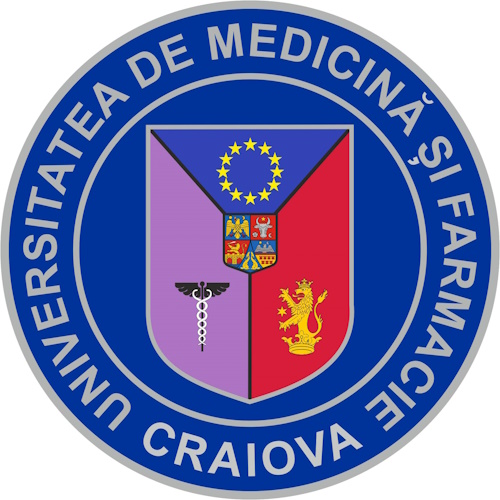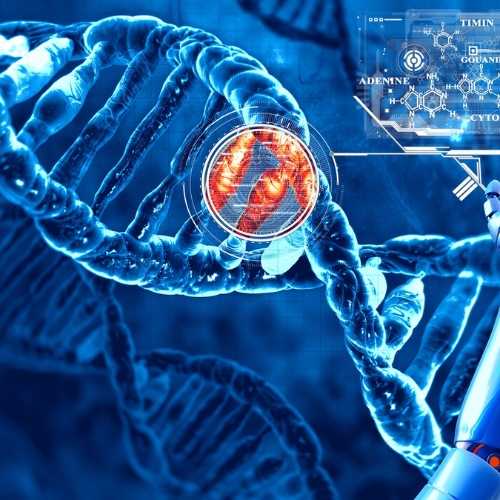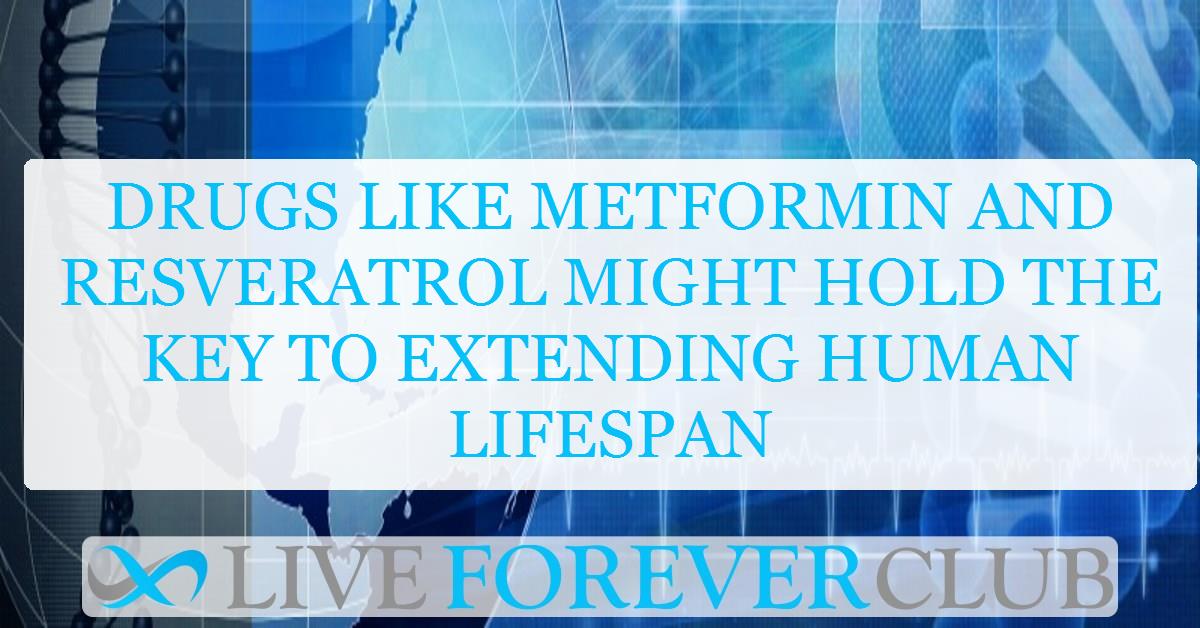With the ongoing increase in human life expectancy, the quest for effective anti-aging solutions is accelerating. Researchers are delving into pharmacological interventions that hold the promise of prolonging life, conducting studies that range from simple organisms to mammals. The key to unlocking the potential of these treatments for human application lies in understanding how they function across different species.
Understanding Aging
Aging is a multifaceted biological process shaped by various factors. Genetics, lifestyle choices, and environmental conditions all influence how we age. For example, what we eat, how much we exercise, and the experiences we have early in life all play critical roles in this process.
Hallmarks of aging
Scientists have pinpointed several key signs of aging, often referred to as the hallmarks of aging. These include:
- Genomic Instability: Our DNA can accumulate damage over time, leading to genetic instability. This damage can result from environmental factors like UV radiation or from natural cellular processes.
- Telomere Attrition: Telomeres are protective caps at the ends of our chromosomes. Every time a cell divides, these telomeres get a bit shorter. When they become too short, cells can no longer divide properly, leading to aging and cell death.
- Epigenetic Alterations: Changes in gene expression that do not involve changes to the underlying DNA sequence can occur with age. These epigenetic changes can affect how genes are turned on or off, influencing aging.
- Loss of Proteostasis: Proteostasis refers to the balance and maintenance of proteins within cells. Aging can disrupt this balance, leading to the accumulation of damaged or misfolded proteins.
- Deregulated Nutrient Sensing: Our cells' ability to detect and respond to nutrients can become less effective with age. This disruption can affect metabolic pathways and overall health.
- Mitochondrial Dysfunction: Mitochondria are the powerhouses of our cells, generating the energy needed for cellular functions. As we age, mitochondrial function can decline, leading to reduced energy production and increased oxidative stress.
- Cellular Senescence: Senescent cells are cells that have stopped dividing but do not die off. These cells can accumulate over time, contributing to aging and age-related diseases.
- Stem Cell Exhaustion: Stem cells are essential for tissue repair and regeneration. With age, the ability of stem cells to function effectively can decline, leading to reduced tissue maintenance and repair.
- Altered Intercellular Communication: Aging can affect how cells communicate with each other. This can lead to inflammation and other changes that impact overall health.
By targeting these hallmarks of aging, scientists believe we can develop interventions to extend our healthy lifespan. For example, improving our diet, increasing physical activity, and using specific drugs could help manage genetic instability, maintain telomere length, and optimize metabolic functions. These strategies aim to not only prolong life but also enhance the quality of life as we age.
Researchers have identified several pharmacological treatments that show promise in extending lifespan. These include metformin, resveratrol, rapamycin, and spermidine. Each of these treatments works through different mechanisms to influence aging processes, offering hope for their application in humans.
From Yeast to Humans: The Journey of Lifespan Extension
Research on anti-aging treatments spans a range of species, from yeast to mammals. These studies provide valuable insights into how different interventions can potentially extend lifespan.
Insights from Simple Organisms
- Yeast: Yeast, such as Saccharomyces cerevisiae, serve as a foundational model in aging research. Their simple cellular structure and short lifespan allow scientists to quickly observe the effects of genetic modifications and pharmacological treatments. For instance, compounds like resveratrol have been shown to extend the lifespan of yeast by activating sirtuins, proteins involved in cellular regulation.
- Worms: The nematode Caenorhabditis elegans is another popular model due to its simple anatomy and short lifespan. Research on C. elegans has demonstrated the effects of various treatments like metformin and rapamycin on extending lifespan by influencing metabolic and cellular processes.
- Flies: Drosophila melanogaster, or fruit flies, offer more complexity than yeast and worms. They have been instrumental in studying the genetic and environmental factors affecting aging. Studies have shown that interventions such as dietary restriction and pharmacological treatments can significantly extend the lifespan of fruit flies.
Insights from Complex Organisms
- Mice: Mice provide a closer model to humans due to their physiological and genetic similarities. They are particularly useful for studying the effects of anti-aging treatments in a whole-organism context. Interventions like metformin, rapamycin, and resveratrol have shown promising results in extending the lifespan of mice and improving healthspan by targeting pathways involved in metabolism and cellular maintenance.
Challenges in Translating Findings to Humans
While these studies provide promising results, translating them to humans presents several challenges:
- Biological Complexity: Humans are far more complex than yeast, worms, or flies. Our bodies have multiple interconnected systems that can respond differently to treatments. What works in a simple organism might not have the same effect in humans.
- Metabolic Pathways: Different species have distinct metabolic pathways. For example, a drug that affects insulin signaling in mice may not produce the same outcome in humans due to variations in metabolic regulation.
- Genetic Differences: Genetic variations between species can lead to different responses to the same treatment. The genetic makeup of humans is more diverse and complex, which can influence how we respond to anti-aging interventions.
- Dosage and Safety: Determining the appropriate dosage that is both effective and safe for humans is challenging. Treatments that extend lifespan in animals might have adverse effects or be toxic in humans at certain dosages.
- Longer Lifespan: Humans have a much longer lifespan compared to model organisms. This makes it difficult to study the long-term effects of anti-aging treatments. Clinical trials would need to span decades to observe meaningful results.
Metformin: A Diabetes Drug with Potential
Metformin is a widely used medication for managing type 2 diabetes. Its primary function is to improve insulin sensitivity and reduce blood sugar levels. Beyond its role in diabetes management, metformin has shown promise in extending lifespan and improving healthspan across various species.
Effects on Simple Organisms
- Yeast: Research on Saccharomyces cerevisiae has demonstrated that metformin can significantly extend lifespan. In yeast, metformin has been shown to alter metabolic processes, leading to an increase in chronological lifespan. It achieves this by promoting oxidative phosphorylation and enhancing mitochondrial function, which are crucial for maintaining cellular health.
- Worms: Studies on the nematode Caenorhabditis elegans have revealed that metformin can extend lifespan by modulating microbial folate and methionine metabolism. This indicates that metformin's impact on aging may involve complex interactions with the organism's microbiome and metabolic pathways.
- Flies: In Drosophila melanogaster, metformin has shown dose-dependent effects on lifespan. Research indicates that at certain concentrations, metformin can extend the lifespan of flies by improving metabolic health and enhancing stress resistance. However, at higher doses, it can have detrimental effects, highlighting the importance of finding the right dosage.
Effects on Mammals
- Mice: Metformin has also been studied extensively in mice, providing more insights into its potential effects on mammals. In mice, metformin has been shown to extend lifespan and improve healthspan. It achieves this by reducing chronic inflammation, enhancing mitochondrial function, and promoting autophagy (the process by which cells remove damaged components). Studies have shown that mice treated with metformin exhibit improved insulin sensitivity, reduced fat mass, and better overall metabolic health.
Mixed Results in Human Studies
While metformin has shown promising results in animal studies, translating these findings to humans has proven challenging. Human studies on metformin and aging have yielded mixed results:
- Observational Studies: Some observational studies suggest that people with type 2 diabetes who take metformin have a lower risk of age-related diseases and a slightly longer lifespan compared to those who take other diabetes medications. However, these studies are limited by confounding factors, such as differences in health behaviors and disease severity among participants.
- Clinical Trials: Clinical trials designed to test metformin's effects on aging in humans are still ongoing. Preliminary results have shown some benefits, such as improved insulin sensitivity and reduced markers of inflammation. However, these trials are often short-term and may not capture the long-term effects of metformin on lifespan and healthspan.
- Potential Side Effects: Long-term use of metformin in humans can have side effects, such as gastrointestinal issues and vitamin B12 deficiency. Understanding these side effects is crucial for assessing the drug's overall impact on aging and determining the optimal dosage for potential anti-aging benefits.
Resveratrol: The Power of Red Wine
Resveratrol is a naturally occurring compound found in the skin of red grapes, red wine, berries, and peanuts. It has attracted significant attention for its potential anti-aging properties. Researchers have conducted numerous studies across various species, from yeast to mammals, to explore resveratrol's effects on lifespan and healthspan.
Mechanism of Action: Activating Sirtuins
Resveratrol is known for its ability to activate sirtuins, a family of enzymes that play a crucial role in cellular regulation, including DNA repair, gene expression, and metabolism. Sirtuins, particularly SIRT1, are involved in processes that contribute to longevity and protection against age-related diseases. By activating sirtuins, resveratrol helps improve cellular function and resistance to stress, which are key factors in aging.
Effects on Simple Organisms
- Yeast: In Saccharomyces cerevisiae (baker's yeast), resveratrol has been shown to mimic the effects of calorie restriction, a well-known intervention that extends lifespan. Resveratrol activates Sir2, a yeast sirtuin, leading to an increase in lifespan by promoting DNA stability and efficient repair mechanisms. Studies have reported lifespan extensions of up to 70% in yeast treated with resveratrol.
- Worms: Research on the nematode Caenorhabditis elegans has demonstrated that resveratrol can extend lifespan by activating the worm's sirtuin, sir-2.1. This activation enhances stress resistance and improves mitochondrial function, which are critical for longevity. Resveratrol-treated worms often show significant increases in lifespan, similar to those observed with calorie restriction.
- Flies: In Drosophila melanogaster (fruit flies), resveratrol has been found to extend lifespan under certain dietary conditions. For instance, when flies are maintained on a low-calorie diet, resveratrol supplementation can further increase their lifespan. The compound appears to work by activating dSIR2, the fly equivalent of the sirtuin family, improving metabolic health and stress resistance.
Effects on Mammals
- Mice: Studies on mice provide more insights into resveratrol's potential benefits in complex organisms. In mice, resveratrol has been shown to extend lifespan and improve healthspan, particularly when combined with a high-fat diet. Resveratrol activates SIRT1, enhancing mitochondrial function, reducing inflammation, and improving metabolic health. Mice treated with resveratrol exhibit improved insulin sensitivity, lower levels of fat accumulation, and better overall physical performance.
Human Studies: Early Findings and Ongoing Research
Human studies on resveratrol are still in the early stages, but initial findings suggest potential benefits for promoting healthy aging:
- Cardiovascular Health: Resveratrol is believed to improve cardiovascular health by reducing oxidative stress and inflammation, which are major contributors to heart disease. Some studies suggest that resveratrol can improve blood vessel function and lower blood pressure, although more research is needed to confirm these effects.
- Metabolic Health: Preliminary studies indicate that resveratrol might enhance insulin sensitivity and reduce the risk of developing type 2 diabetes. It may help regulate blood sugar levels and improve metabolic processes, contributing to better overall health.
- Cognitive Function: There is some evidence that resveratrol could support brain health and cognitive function. By reducing inflammation and oxidative stress in the brain, resveratrol might protect against neurodegenerative diseases like Alzheimer's and improve memory and learning.
Rapamycin: From Soil to Lifespan Extension
Discovered in a soil sample from Easter Island, rapamycin has shown promise in extending lifespan across various species. Research on yeast, flies, worms, and mice indicates that rapamycin improves healthspan by inhibiting the TOR (Target of Rapamycin) signaling pathway, which plays a crucial role in cell growth, metabolism, and aging.
By modulating this pathway, rapamycin enhances cellular maintenance processes like autophagy, thereby promoting longevity. Human studies are now exploring rapamycin's potential to enhance immune function and address aging-related conditions.
Early findings suggest that rapamycin could help improve immune responses in the elderly and reduce inflammation, which is a significant factor in many age-related diseases. As research progresses, rapamycin may become a valuable tool in promoting healthy aging and extending lifespan in humans.
Spermidine: A Natural Polyamine
Spermidine, a compound found in various foods such as soybeans, mushrooms, and whole grains, is gaining recognition for its potential health benefits. Research on yeast, flies, worms, and mice indicates that spermidine can extend lifespan by promoting autophagy, a process that helps clear damaged cells and maintain cellular health. By enhancing autophagy, spermidine supports cellular regeneration and resilience, contributing to increased longevity.
Studies show that spermidine supplementation leads to improved metabolic function, reduced inflammation, and enhanced stress resistance in these organisms. Ongoing research aims to uncover spermidine's potential for improving human health and extending lifespan.
Preliminary findings suggest that it may help in mitigating age-related diseases, improving cardiovascular health, and boosting cognitive function. As research progresses, spermidine could become a valuable dietary supplement for promoting healthy aging and longevity in humans.
In sum, advancing anti-aging research is crucial for extending human healthspan. By understanding the mechanisms behind successful interventions in model organisms, scientists can develop therapies that promote healthy aging in humans. Ongoing research and collaboration will pave the way for breakthroughs in extending lifespan and improving quality of life.
The study was carried out by researchers at University of Medicine and Pharmacy of Craiova and published in the journal Aging Cell.







